How familiar are you with the world of mudras? Frankly, they’ve been mysterious to me because many yoga teachers don’t place a lot of attention on them during class.
While many of the online classes I’ve taken often incorporate mudras into asana practice, most classes I’ve taken at studios—my favorite being the one in an open-air pagoda of the Paleaku Peace Gardens in South Kona, Hawaii—almost never teach mudras.
But, mudras deserve attention because they hold healing powers in and of themselves.
By simply bringing your hands into a particular position, you can positively impact your body, mind, and soul.
Certain mudras (hand gestures) target specific areas in the subtle body. Others bring feelings of calm, peace, and contentment—perfect for us stressed out modern day yogis. (Learn more in The Power of Mudras.)
To find out which mudra is for you, you’ll want to practice different mudras over a period of time. Sit with them and see how they make you feel.
Another way of discovering which mudra is for you would be to pay attention to what you need, since different mudras have different effects on the energetic body.
Let’s take a look at some of the most common mudras. Then you can experiment with each one to figure out what kind of healing your body, mind, and spirit truly need, and in doing so, discover which mudra is for you.
Gyan Mudra
Gyan mudra is probably the most common mudra used during meditation, after a well-rounded yoga class. This is the one where you touch your thumb to your pointer finger, then rest your hands on your knees as you sit cross-legged in meditation.
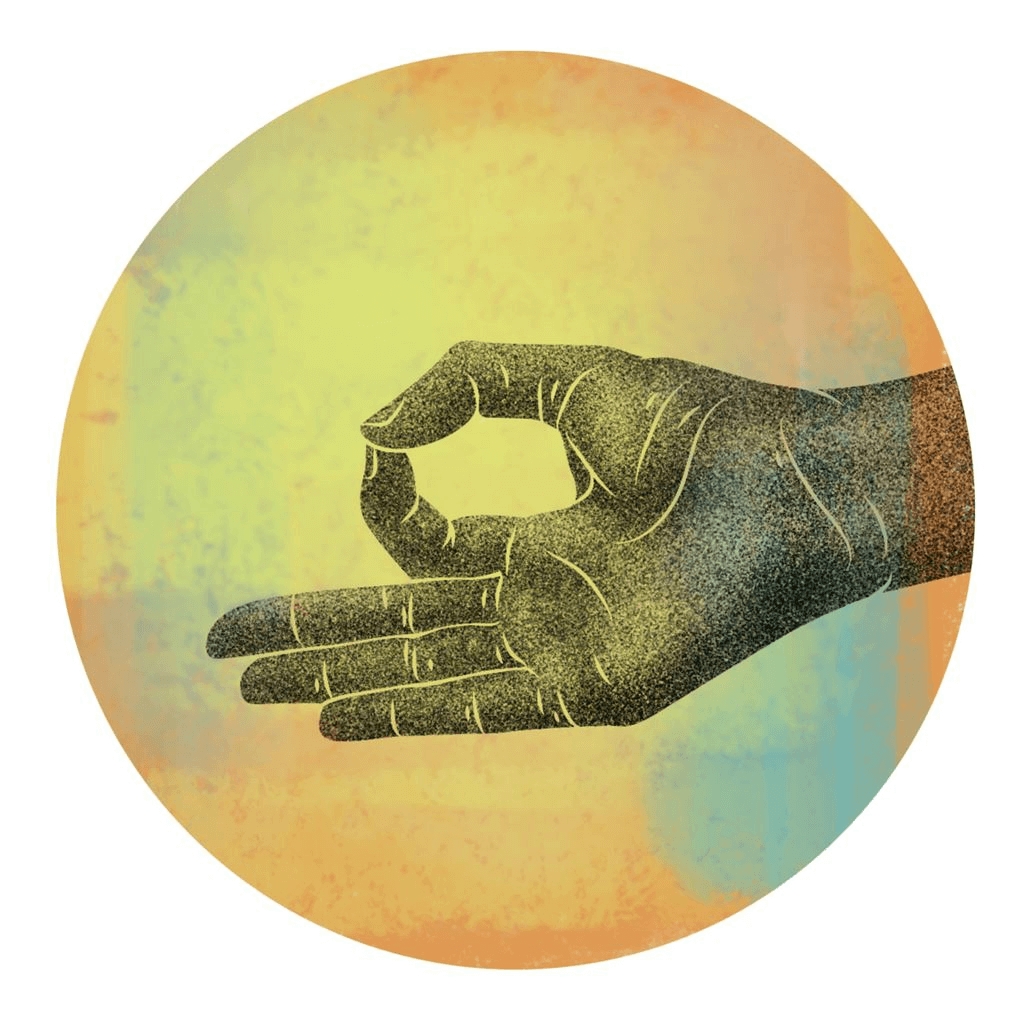
You can also place your hands in gyan mudra while practicing different yoga poses. Sometimes, I find my hands naturally placing themselves in gyan mudra in certain postures.
It’s as if the hands know what to do without me even thinking about it.
Gyan mudra is perfect for you if you need to calm and ground yourself. It’s also draftl to cultivate mental focus. Some believe gyan mudra also helps with depression, sleep loss, stress, and anxiety. (Learn more in 5 Mudras To Support Your Mental Health.)
Anjali Mudra
Anjali mudra is yet another one you’re definitely familiar with. It’s simply prayer position. We typically fold our hands at our heart center when we say namaste, or during sun salutations, or when we’re balancing in tree pose. (Learn more in Namaste and Namaskar: Greeting the Divine.)
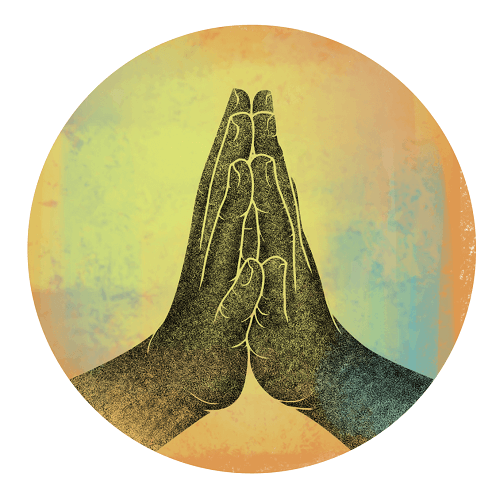
This one is so powerful simply because it brings our awareness to our heart centers. It helps us get out of our heads and into our hearts, which is a really good thing because our heart has an intelligence that goes far beyond intellect.
Anjali mudra is for you if you need to focus on quieting your monkey mind and connecting more to your heart’s deepest wisdom. (Learn more in Connect With Yourself: 5 Mudras for the Heart.)
Prana Mudra
Prana mudra looks a lot like gyan mudra. Instead of touching your thumb and pointer fingers together, you bring your thumb to your pinky and ring fingers.
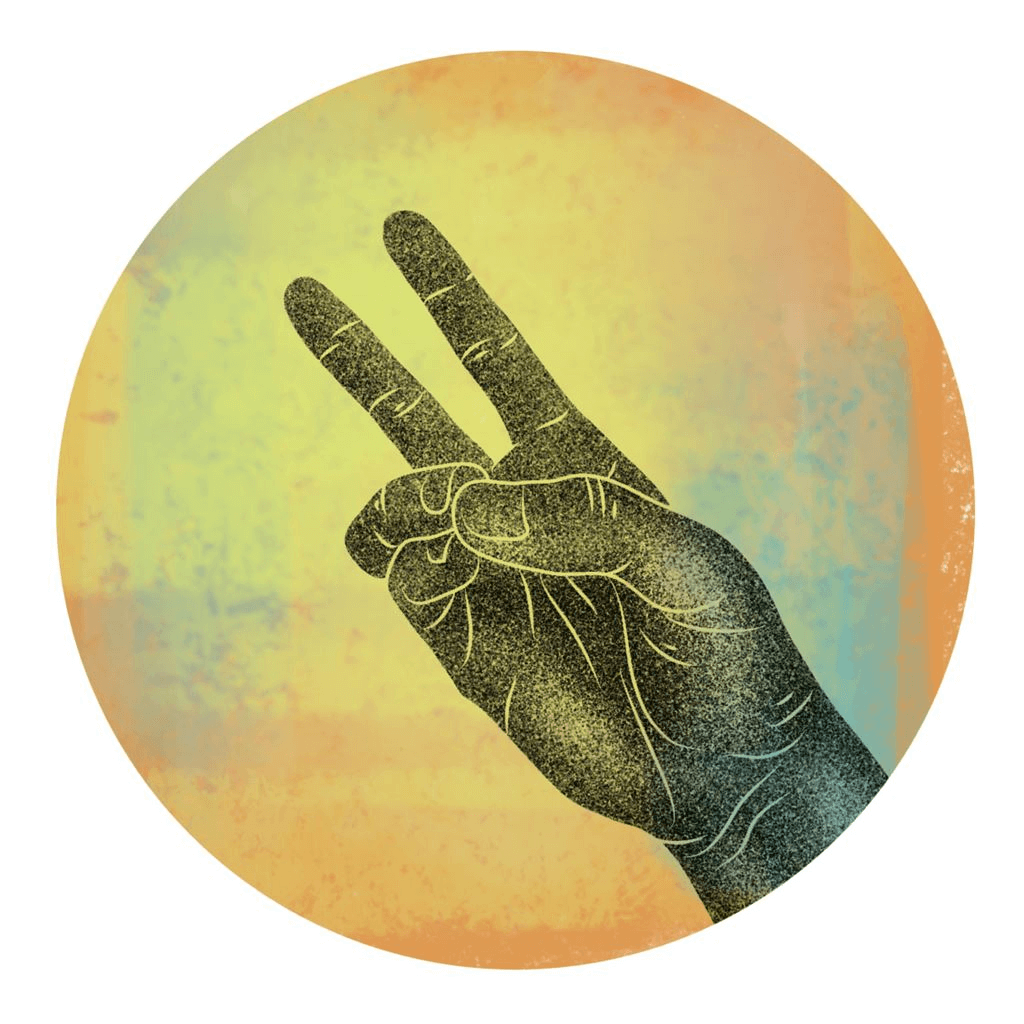
Prana mudra is for you if you sense that your prana is blocked; your energetic body needs to be balanced, with its energy flowing freely within. (Makes sense why it resembles a peace symbol!)
Prana mudra has also been used to help purify the blood, which boosts the immune system and leaves you with glowing skin.
To get the prana flowing and receive the additional healing effects of prana mudra, spend some time with your hands in this mudra whenever you sit to meditate. See how it feels and pay attention to subtle changes within your body over time.
Agni Shakti Mudra
Do you need a mudra to quell stress and anxiety? Perhaps you’re going through a difficult period in your life—one that’s got you in a ball of nerves all the time. (Learn more in How Meditation can Help Soothe Your Stress and Anxiety.)
If so, agni shakti mudra is for you. This particular mudra is an energetic elixir to combat stress.
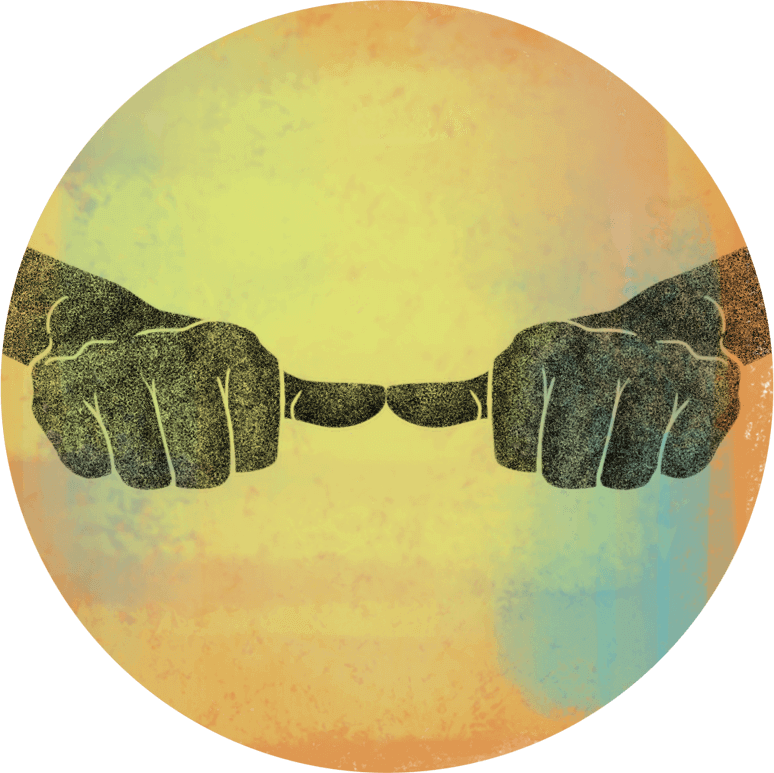
To practice agni shakti mudra, curl your fingers in towards your palms. Your fingertips should be touching the palm. Then, leave the thumbs outward, having them touch each other at your navel center.
Breathe deeply as you allow your body to relax and let go of stress, inviting in tranquility, serenity, and peace.
Varuna Mudra
Varuna mudra is all about balancing your internal fluids. Your pinky finger is said to be connected to the water element in your body. In varuna mudra, we touch our pinky finger to our thumb, leaving the remaining three fingers outstretched.
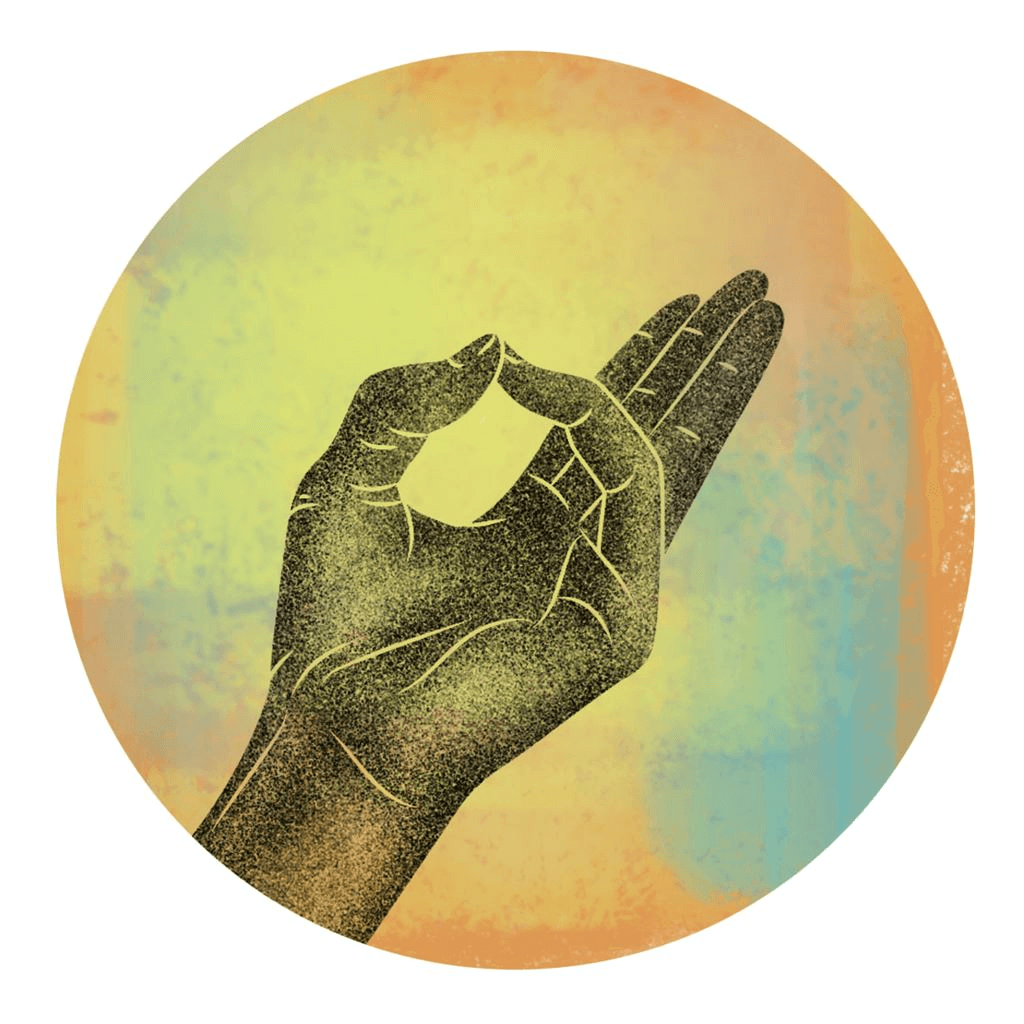
This mudra is also believed to be great for your complexion, as well as your ability to communicate with others from a place of intuition.
As you can see, the world of mudras is vast. Have fun integrating these mudras into your daily sadhana! (Learn more in Top 10 Mudras for Your Yoga Practice.)
With time, you’ll figure out which one really resonates with you. Of course, this will change over time because we’re constantly changing and evolving as yogis.
But, there might be a mudra that helps you get through a period in your life, or one that you find yourself drawn to again and again.
Pay attention to that.
Your body intuitively knows what it needs.
During These Times of Stress and Uncertainty Your Doshas May Be Unbalanced.
To help you bring attention to your doshas and to identify what your predominant dosha is, we created the following quiz.
Try not to stress over every question, but simply answer based off your intuition. After all, you know yourself better than anyone else.